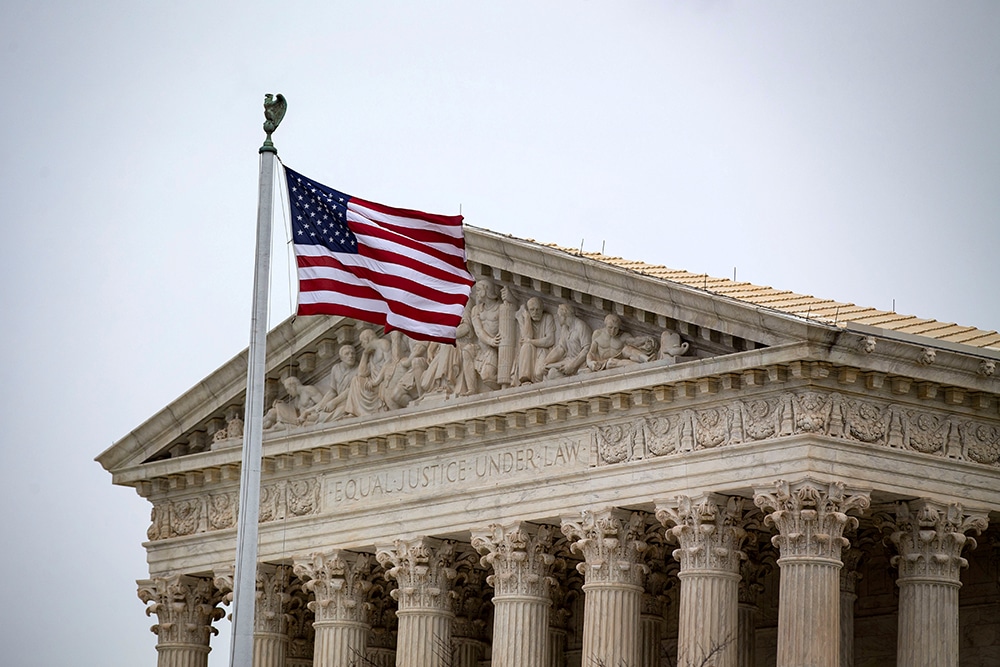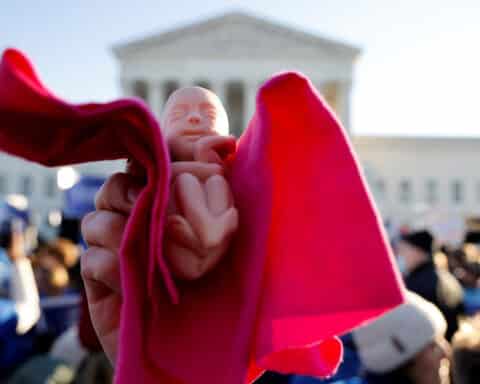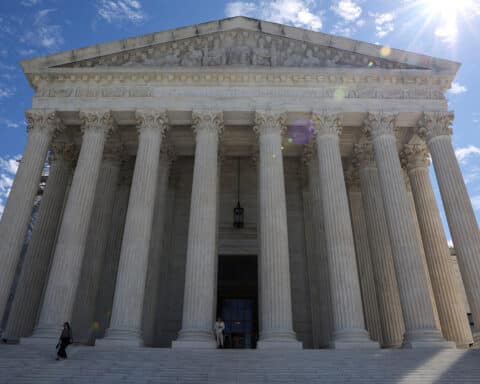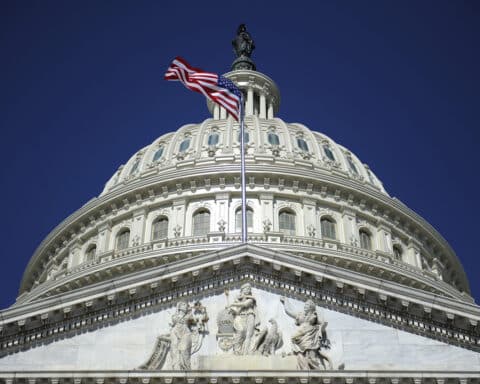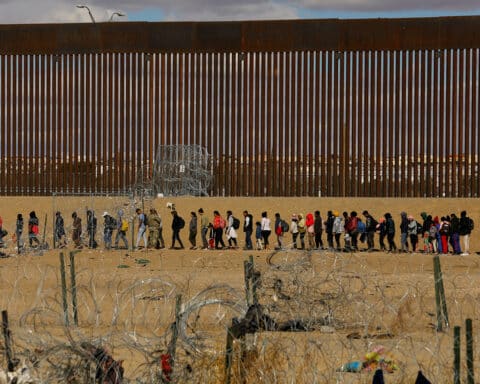In agreeing to consider a dispute involving a Catholic social service agency’s policy of not placing foster children with same-sex couples, the Supreme Court has set the stage for what may be a landmark ruling on the rights of religious institutions and individuals.
In asking the court to consider the case (Fulton v. Philadelphia), attorneys representing Catholic Social Services of the Philadelphia archdiocese called the city’s action shutting down the Catholic agency’s foster care program because of this policy “a direct and open violation of the First Amendment.” The heart of the dispute, they contend, is that “the city disagrees with the archdiocese about marriage.” The Supreme Court has scheduled the case for its term that begins in October.
Conflicts similar to this one in the constitutional questions they raise have multiplied in recent years in the face of stepped-up activism by LGBTQ groups pressing various demands.
In 2018, for example, the Supreme Court upheld the right of a Colorado baker who refused on conscience grounds to bake a cake for a same-sex wedding. But the court based its ruling in that case on narrow grounds — the state’s anti-discrimination agency had exhibited overt hostility to the baker’s religious belief, thereby making it impossible for him to get a fair hearing. The Supreme Court’s decision was a win for the baker, certainly, but it was a victory with limited application elsewhere because of its narrow basis.
Now the Philadelphia foster care case gives the justices an opportunity to broaden the protection of religious groups and individuals if they so choose.
At the time the dispute began, Catholic Social Services had been placing children in foster care for over a century but had never been approached by a same-sex couple seeking to serve as foster parents.
Then city officials, having read in a newspaper about the agency’s policy against same-sex placements, brought pressure to bear in an attempt to force it to change. The Catholic agency refused, and the conflict went to court. A district court and the 3rd Circuit U.S. Court of Appeals both ruled in favor of the city.
The 3rd Circuit based its ruling largely on the Supreme Court’s 1990 decision in a case called Employment Division v. Smith. The majority opinion in that ruling, written by the late Justice Antonin Scalia, said that “neutral” or “generally applicable” laws that burden religion are acceptable.
In appealing to the Supreme Court in the Philadelphia case, Catholic Social Services’ lawyers — from a public interest law firm called the Becket Fund for Religious Liberty — ask that the justices take a fresh look at the Smith decision, which they say has resulted in confusion reflected in a variety of lower court rulings in conflict with one another.
In a statement, Lori Windham, senior counsel at the Becket Fund, said children are the real losers when, as has happened in a number of places, Catholic foster care programs are put out of business because of their opposition to same-sex placements.
“Over the last few years,” she said, “agencies have been closing their doors across the country, and all the while children are pouring into the system. We are confident that the court will realize that the best solution is the one that has worked in Philadelphia for a century — all hands on deck for foster kids.”
Russell Shaw is a contributing editor for Our Sunday Visitor.

